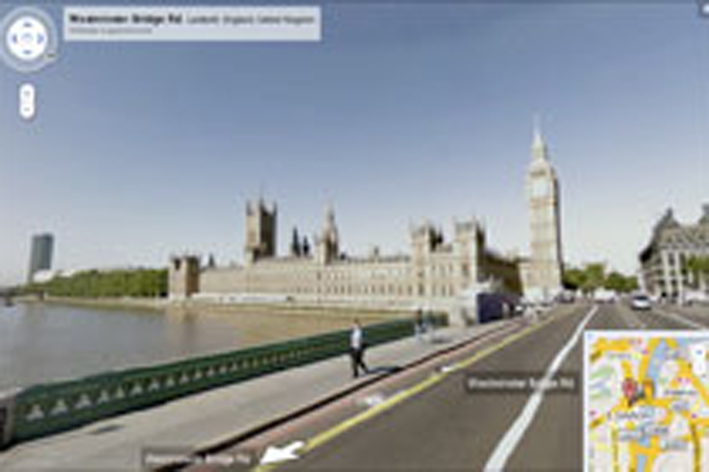Should we be worried about Google Street View?
Simon Brew offers his personal take on the launch of Google Street View. And he’s a worried man…

On the outskirts of Dudley, Google's latest gift to the internet has yet to be delivered. And there, in a quiet little cul-de-sac, tucked away at the end of the road with a fine hostelry at the other side, lies my house.
I like my house. Granted, the guttering needs cleaning out, and maybe it's time to tarmac the drive, but it's my little corner of the world, free from the incessant need by society to watch absolutely everything that we do.
People in 25 UK cities, however, don't quite have the same luxury and a luxury, sadly, is the best way to describe it in modern society. Because yesterday, Google saw fit to unleash its Street View technology.
This addition to Google Maps replaces the labyrinth of diagrammatical streets we're perhaps used to seeing, and replaces them with actual photographs, so that you can see an accurate visual recreation of the street you're searching. There are real people, real cars and real buildings, all for you to scroll through from the comfort of your own home.
It's okay, though, if you happen to have been walking along the street, or driving in your car at the time the Google cameras went driving by. Google has satiated the Information Commissioners' Office
(ICO) by deploying software that blurs number plates and faces, in the manner of a cheap Doctor Who special effect. It's thus had legislative clearance, is entirely within the law, and in spite of threats of legal challenges is absolutely here to stay. You can complain to the ICO, too if you want something removed.
Yet this, this, ladies and gentlemen, was surely the point where someone was supposed to say 'stop'.
Get the ITPro daily newsletter
Sign up today and you will receive a free copy of our Future Focus 2025 report - the leading guidance on AI, cybersecurity and other IT challenges as per 700+ senior executives
The launch
Yesterday, in the office I worked in, I watched with real unease as people around me took advantage of this undoubtedly fascinating and very clever piece of software. I must admit too, that I was intrigued. Like the day Google Earth was first made available, there was a feeling that this was something quite different, and maybe even a bit revolutionary.
But then, in this case, we weren't looking at the oceans, or zooming in on New York. We were looking at the house of the person who sits not ten feet away from me. And the housemate of someone else not too far away being quizzed outside their home. The people in the photographs had no way of knowing that the Google photographic car was driving past at that moment in time, because Google didn't bother to tell them. Instead, the first they found out was yesterday, when Google made Street View widely available.
Let's be clear, before I have to put the Luddite T-shirt on and go back to using an abacus and a stencil. Technology is great. It's an enabling force, and I've embraced it since the day my father first brought an Atari into our home in the early 80s. Properly used, it's exciting, and I love the fact that I work in this sector.
And, also, I see the advantage in having a product that allows you to, for instance, zoom along a High Street and find the shop that you're looking for. Or maybe even track down a hotel you're stopping in. Heck, the commercial opportunities here are almost limitless, and if it makes for a good business tool, then facets of Google Street View should be actively applauded.
But then you come to people's homes. And for me, that's where it starts to get sinister. For when did the day come when having pictures of your home on the internet became an opt out decision?
What happened to basic manners, or to the simple thought that some people don't want a picture of their home online? The worrying factor is that 98 per cent of those homes and residential streets that have made it into the Street View service have been uploaded without the people who live in the houses pictures ever likely to find out.
-
 Bigger salaries, more burnout: Is the CISO role in crisis?
Bigger salaries, more burnout: Is the CISO role in crisis?In-depth CISOs are more stressed than ever before – but why is this and what can be done?
By Kate O'Flaherty Published
-
 Cheap cyber crime kits can be bought on the dark web for less than $25
Cheap cyber crime kits can be bought on the dark web for less than $25News Research from NordVPN shows phishing kits are now widely available on the dark web and via messaging apps like Telegram, and are often selling for less than $25.
By Emma Woollacott Published